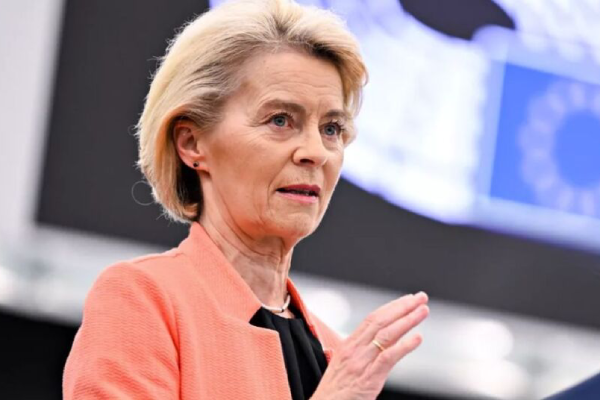Ursula von der Leyen, the EU’s chief executive, faces a confidence vote on Thursday that has little chance of success but has exposed tensions among her supporters and criticisms about her leadership style.
At around midday (1000 GMT), European legislators in Strasbourg will vote on a rare challenge brought by a far-right faction to the European Commission president.
In an address to parliament this week, von der Leyen denounced the no-confidence motion as a conspiracy theory-laden attempt to divide Europe, labeling its backers as “anti-vaxxers” and Russian President Vladimir “Putin apologists”.
She urged lawmakers to renew confidence in her commission arguing it was critical for Europe to show unity in the face of an array of challenges, from US trade talks to Russia’s war in Ukraine.
Gheorghe Piperea, a Romanian far-right lawmaker, initiated the no-confidence motion.
He accuses von der Leyen of failing to be transparent about text conversations she exchanged to the president of the Pfizer pharmaceutical company while negotiating Covid vaccinations.
The commission’s failure to divulge the texts, which has been the subject of many court battles, has lent credence to opponents who accuse its chairman of centralized and opaque decision-making.
That is also a growing refrain from the commission chief’s traditional allies on the left and centre, who have used the vote to air their grievances.
A major complaint is that von der Leyen’s centre-right camp has increasingly teamed up with the far-right to further its agenda — most notably to roll back environmental rules.
Centrist leader Valerie Hayer told parliament this week that von der Leyen’s commission was “too centralised and sclerotic” before warning that “nothing can be taken for granted”.
That vote came after Romania’s constitutional court rejected an initial ballot due to claims of Russian involvement and widespread social media advocacy of the far-right leader, who was prevented from running again.
Piperea’s challenge is unlikely to be successful.
It is supported by certain left-wing and far-right parties, notably the party of Hungary’s nationalist Prime Minister Viktor Orban.
The two largest groupings in parliament, the centre-right EPP and the centre-left Socialists and Democrats, have also categorically rejected the challenge, which requires two-thirds of votes cast and a majority of all lawmakers to pass.





